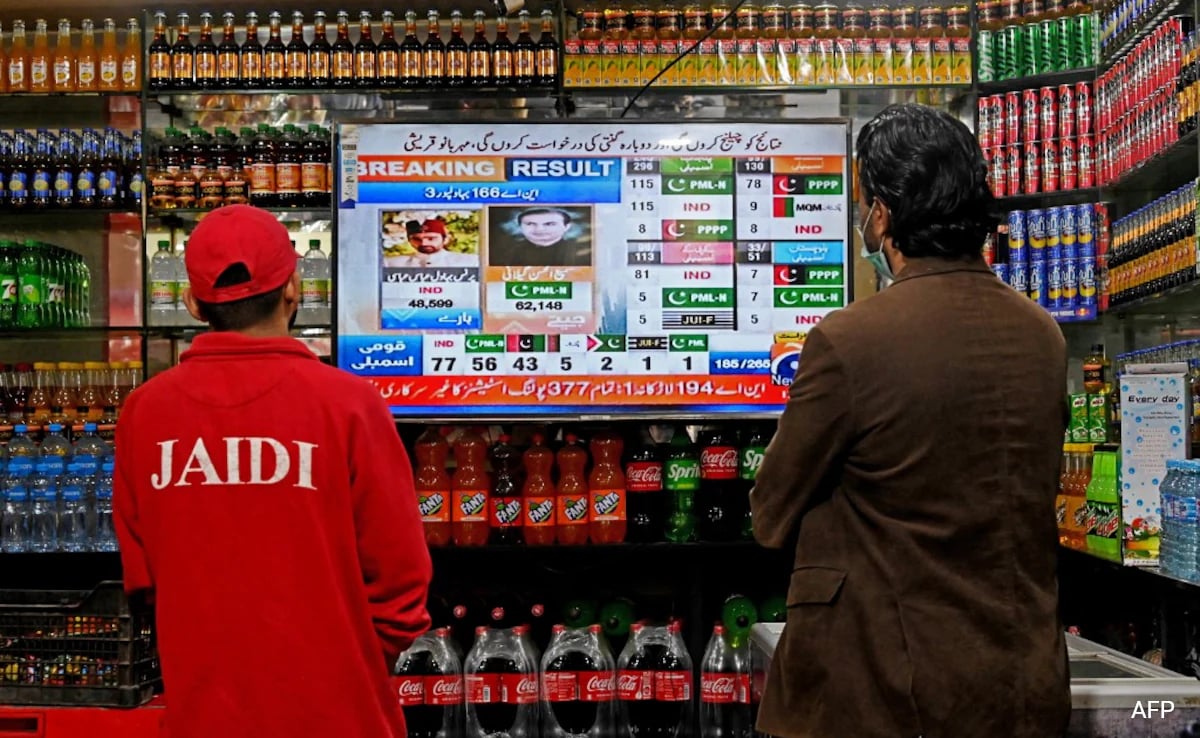But after long delays in results that prompted further allegations the military had engaged in vote-rigging, the army-backed Pakistan Muslim League-Nawaz (PML-N) declared victory as the party with the largest number of seats. However, to form a government, the party founded by the three-time former Prime Minister Nawaz Sharif will be forced to cut deals with rivals and independents.
The PPP, whose popularity is largely limited to its Sindh heartland, also did better than expected, with leader Bilawal Bhutto Zardari saying early results were “very encouraging”. The PML-N and PPP joined forces with minor parties to boot Khan from office in April 2022 after his PTI had won a slender majority in the 2018 election.
“We don’t have enough of a majority to run the government ourselves, therefore we invite the other parties and candidates who have been successful to work with us,” Mr Sharif said at his party headquarters in Lahore.
Imran Khan yesterday claimed victory in the general election in an audio-visual message created using artificial intelligence and shared on his X social media account. Imran Khan heads the Pakistan Tehreek-e-Insaf (PTI).
The PTI had defied a months-long crackdown that crippled campaigning and forced their candidates to run as independents with a combined showing in Thursday’s election that still challenged their chief rivals.
Imran Khan also rejected rival Nawaz Sharif’s earlier claim to victory. Khan called on his supporters to celebrate a win that was achieved despite what he calls a crackdown on his party.
A slow counting process showed independents had won at least 99 seats — 88 of them loyal to Khan — by Saturday morning.
PML-N took 71 and the Pakistan Peoples Party (PPP) snapped up 53, with 15 of the elected 266-seat National Assembly still to be announced.
Minor parties between them shared 27 seats — including the Muttahida Qaumi Movement (MQM), which took 17 — that are likely to be of great interest to PTI in coming days.
If PTI’s independents join one of them, they can take a share of the further 70 unelected seats reserved for women and religious minorities, which are allocated according to party performance in the contested vote.
With inputs from AFP
![]()
